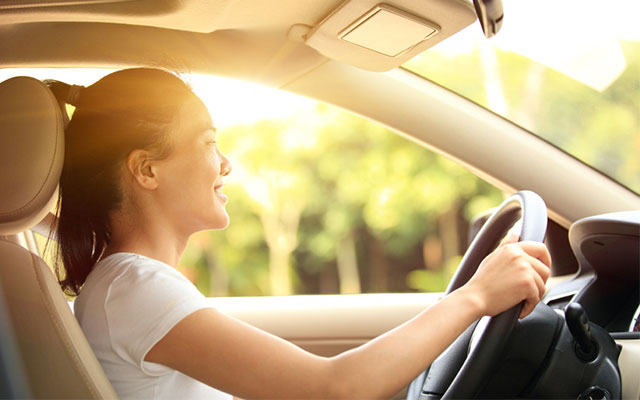Prince Philip created quite a stir the other day when he flipped his Land Rover after crashing into a Kia minivan on a coastal road in England, injuring the driver. Unscathed, he then refueled the controversy a couple of days later when an observant subject spotted him back on the road in an uncrumpled Land Rover, sans seatbelt, perhaps inviting a new collision.
Police reportedly gave the 97-year-old patriarch a stern lecture about driver safety, but they departed without demanding he turn in his license. Meanwhile, the injured woman, 46-year-old Emma Fairweather (whose name I did not make up) cried foul when the Prince claimed he had been momentarily blinded by the sun when he slammed into her vehicle. “I don’t see how that could be true when it was overcast,” she told the Mirror.
The kerfuffle no doubt provided Brexit-weary Britons a reason to temporarily divert their gaze from the train wreck in Parliament — and perhaps wonder how many Land Rovers the royal family houses in the royal garage. But it also had the effect of once again raising prickly questions about the hazards of allowing geezers to take the wheel.
Prince Philip is a member of my parents’ generation and apparently shares its devil-may-care attitude about automobile travel. When my dad was old enough to reach the floorboard pedals, he simply mailed an application to the state and a few weeks later a driver’s license arrived in the mailbox. Driving tips came from car salesmen or family and friends. It wasn’t until 1948, three years before I was born, that Minnesota law began to require aspiring drivers to pass a test before earning a license. This laissez-faire approach produced predictably gruesome results: In 1941, the height of the U.S. highway slaughter, more than 38,000 Americans died in car crashes, about 28 per 100,000 population.
Despite all the carnage around him, my dad (Mom didn’t drive) bequeathed me and my siblings a remarkably casual attitude toward driving. I recall as an 8-year-old the thrill of piloting Dad’s 1953 Ford down our suburban street while sitting on my big brother’s lap, assuming he’d hit the brakes if my steering proved erratic. And I’ll never forget the teenage adrenaline rush we felt when my best friend and I “borrowed” his dad’s Triumph to deliver — sans licenses or seatbelts — the newspapers on our Sunday morning routes. A car just seemed to inspire recklessness.
I barely passed the driver’s test on my fourth try, behind the wheel of a 1959 Volkswagen that lacked a reliable reverse gear, but I have managed in the intervening 50 years to avoid major collisions despite a wavering observance of traffic laws. Stop signs, for instance, often present themselves as suggestions rather than commands. My Lovely Wife, bless her fluttering heart, has mostly suffered quietly in the passenger seat, her foot pressed fruitlessly on the imaginary floorboard brakes. But my frequent transgressions seldom escaped the notice of our daughter, The Boss Mare, once she learned the rules of the road. If I completed a left turn with a lack of precision or snuck through a red light, I could depend on an immediate backseat critique, often expressed in a simple declaration: “FAIL!”
TBM is probably relieved that I no longer ferry her across town to soccer practice or up north to the horse barn, a fact that has no doubt postponed any lobbying effort to revoke my driving privileges. Besides, I’m not yet exhibiting the level of cognitive decline that tends to initiate that conversation. And, for the record, I probably spend more time pedaling around town on my bicycle than driving my Honda — thus reducing the overall threat to public safety.
Aging Parents and Questionable Driving
Still, Prince Philip’s car troubles are a reminder that the aging-driver question is one many of us will have to navigate at some point. My mother-in-law gave up her car without a tussle in her early 80s after several mishaps raised her insurance rates to levels she could no longer afford, but it’s seldom that easy. A friend of mine whose mother was descending into dementia but still owned a car told me the other day about sneaking into her garage and disengaging the battery. “You have to hook up a fake cable, though,” he said. “Because she’d lift the hood to see what was up.”
There are plenty of other strategies, none of which makes the situation any less complicated. As the New York Times reports, polls have long shown that talking to elderly parents about giving up their car keys is more difficult than discussing funeral plans or selling their home. Doctors would prefer not to be involved in these negotiations; “contracts” in which the parent agrees to accept someone’s recommendation to give up the keys when it becomes clear he or she may no longer be capable of safe driving seem premature and cynical; and balancing the loss of independence against safety concerns remains a sticking point for everyone.
The royal family has probably worked its way through a few of these conversations in recent days, but something tells me Prince Philip is not the type to surrender without a fight. He seems like a salty old man who’s used to getting his way, a guy who knows the royal garage is not going to run out of Land Rovers any time soon.




This Post Has 0 Comments